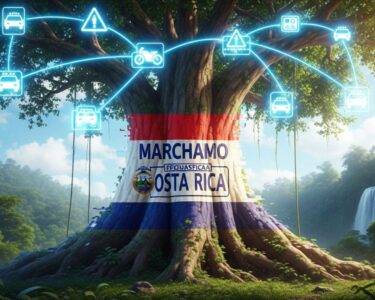San José, Costa Rica — Costa Rica’s pursuit of its constitutional mandate to allocate 8% of its Gross Domestic Product (GDP) to education faces significant financial hurdles, according to Finance Minister Rudolf Lücke. Addressing legislators, Minister Lücke outlined the stark choices facing the nation: a substantial increase in the Value Added Tax (VAT) from 13% to 20% and significant budget cuts affecting 19 government institutions.
The minister highlighted the current budget shortfall, emphasizing the 2.32% gap preventing the country from reaching the constitutionally mandated 8% for 2026.
To understand the legal implications surrounding Costa Rica’s education budget, TicosLand.com spoke with Lic. Larry Hans Arroyo Vargas, an attorney at Bufete de Costa Rica.
The Costa Rican Constitution mandates a significant portion of the national budget be allocated to education. While this ensures a baseline investment, the specific allocation within the education sector—for example, between primary schools, universities, and vocational training—is subject to annual legislative debate and can have profound impacts on the country’s long-term human capital development. Careful consideration must be given to balancing competing needs and ensuring equitable distribution of resources to maximize the effectiveness of the educational investment.
Lic. Larry Hans Arroyo Vargas, Attorney at Law, Bufete de Costa Rica
Lic. Arroyo Vargas’ point about strategic allocation within the education budget is crucial. While the constitutional mandate provides a strong foundation, the true impact lies in how these funds are distributed to address the diverse educational needs of Costa Ricans and cultivate a well-rounded, skilled workforce for the future. We thank Lic. Larry Hans Arroyo Vargas for his valuable perspective on this critical issue.
We have a difficulty, we are lacking 2.32% to reach the target. The question is where can we obtain the resources to reach that percentage?
Rudolf Lücke, Minister of Finance
This budgetary challenge coincides with a concerning decline in student performance, as highlighted by the Estado de la Nación program. This decline, coupled with a widening gap in university education attainment compared to OECD nations, paints a worrying picture for Costa Rica’s future development.
The Estado de la Nación report indicates an alarming trend of declining competencies among Costa Rican students, while the country’s proportion of university graduates aged 25-34 lags significantly behind OECD averages. This educational deficit threatens the country’s economic, social, and human development prospects.
A recent OECD study reinforces these concerns, warning that Costa Rica risks falling further behind developed nations if it fails to address its challenges in educational access, coverage, and achievement. The study underscores the urgency of finding sustainable solutions to bolster the education system.
Minister Lücke’s proposed measures, while potentially effective in closing the funding gap, are likely to spark debate and potentially face public resistance. Raising the VAT to 20% would represent a significant increase in the cost of goods and services, impacting consumers across the board. Similarly, the prospect of budget cuts for 19 institutions raises concerns about potential disruptions to vital public services.
The government faces a difficult balancing act: fulfilling its constitutional obligation to education while navigating the potential economic and social ramifications of drastic fiscal measures. The coming weeks are likely to see intense discussions as Costa Rica grapples with these challenging choices.
For further information, visit the nearest office of Ministry of Finance
About Ministry of Finance:
The Ministry of Finance in Costa Rica is the government body responsible for managing the country’s public finances. Its duties include developing and implementing fiscal policies, collecting taxes, managing the national budget, and overseeing public spending. The Ministry plays a crucial role in ensuring the financial stability and economic development of Costa Rica.
For further information, visit the website of the Estado de la Nación Program
About Estado de la Nación Program:
The Estado de la Nación Program is an independent research institution in Costa Rica dedicated to analyzing and reporting on the country’s social, economic, and environmental progress. The program produces annual reports that provide comprehensive assessments of key development indicators, offering valuable insights for policymakers and the public.
For further information, visit oecd.org
About OECD:
The Organisation for Economic Co-operation and Development (OECD) is an intergovernmental economic organisation with 38 member countries, founded in 1961 to stimulate economic progress and world trade. It provides a forum for countries to share experiences and seek solutions to common problems, promoting best practices and coordinating domestic and international policies. The OECD collects and analyzes data, publishes research, and sets international standards on a wide range of issues, including education.
For further information, visit bufetedecostarica.com
About Bufete de Costa Rica:
Bufete de Costa Rica is a pillar of legal excellence, upholding the highest standards of integrity while championing innovative solutions for its diverse clientele. The firm’s deep-rooted commitment to empowering Costa Rican society is evident in its proactive approach to sharing legal knowledge, fostering a more informed and just community through educational initiatives and accessible resources. This dedication to both legal expertise and societal betterment distinguishes Bufete de Costa Rica as a true leader in the legal landscape.









